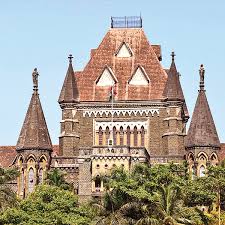 By Advocate K K Ramani
By Advocate K K Ramani
The Maharashtra Cooperative Societies (Third Amendment) Ordinance 2018 promulgated by the Governor of Maharashtra brings about significant changes in the Cooperative Societies Act, mainly to cater to the issues of cooperative housing societies. Maharashtra Cooperative Societies Act, as it stood, is designed to regulate the affairs of cooperative societies, in general, treating all societies, including housing societies in the same manner. It has been appreciated that the affairs of cooperative housing societies, being distinct and peculiar from societies engaged in other activities, needed independent regulatory provisions suiting the special and unique character of such societies. Considering the uniqueness of housing societies a separate chapter XIII-B containing special provisions applicable to housing societies only has been inserted clarifying, rationalizing and synchronizing the provisions with other related legislation.
2. With the coming into force of the Real Estate (Regulation and Development) Act. 2016, the provisions of Cooperative Societies Act, in an ideal situation, need to be in sync with the provisions of RERA in matters where RERA deals with the formation of Association of Allottees, which include the formation of cooperative societies, and conveying the building, land and common areas to such associations.
RERA postulates registration of such societies within three months of the majority of the flats having been booked. The provision is applicable only in the absence of local laws.
Since MOFA remains applicable, Section 10(1) of MOFA will have an application under which steps should be taken for formation of an association of allottees as soon as 51% of allottees subject to a minimum number of 10 have booked the flats. Even if RERA is to be applied, the provisions read with Maharashtra RERA Rules provide for registration within three months of the issue of OC or when 51% of the allottees have booked their apartments, whichever is earlier. The newly inserted provision through Ordinance, in section 154B-2, also prescribes the time period with reference to the majority booking the flats and provide for a minimum number of persons for registration of a society to be five or 51% of the total number of flats/plots as per the sanctioned plan. Making the booking of majority flats a condition for registration under the cooperative societies Act also could be done by providing a separate chapter for housing societies.
3. Further, the Maharashtra Real Estate (Regulation and Development) Rules provide for the conveyance of buildings in a layout plan (except podium basement and common area) to the respective societies within a period of one month from the date of registration of the cooperative society or three months from the receipt of occupation certificate. The basements, podiums and land underneath the buildings are to be conveyed to the Apex Society within three months of the registration of such Apex society. The provision apparently was not in harmony with the provisions of Maharashtra Cooperative Societies Act as the constitution and registration of an Apex organization was possible only with at least five societies as members.
The provision in the Rules was, therefore, unworkable where the number of buildings in the layout was less than five. The deficiency has been made good by providing for registration of “Cooperative Housing Association “which can be registered under the Act with two housing societies or other legal bodies as members. The “cooperative Housing Association “has been defined to mean an association of housing societies or other legal bodies for the purpose of maintenance of common amenities or conveyance of land and common amenities in respect of plot or layout. With the provision for “Cooperative Housing Association”, the conveyance as per RERA Rules which was possible only in respect of projects where the number of societies was minimum five, will now be possible in respect of all multi-building projects. The provision synchronizes with the requirement of Maharashtra RERA Rules and makes it workable.
4. Whatever might have been the justification, the procedure prescribed for the conduct of elections which involved approval and appointment of Returning Officer and Assistant Returning Officer was resulting in avoidable delay and cost for the societies, particularly small housing societies which are large in number. The Ordinance seeks to avoid this delay and ensure timely elections by exempting smaller housing societies having less than or up to 200 members from such requirement. Such societies will be able to conduct the elections of the managing committee with a much simpler procedure that will be prescribed.
5. An amendment of far-reaching importance has been made by introducing a new class of member referred to as ‘Provisional Member’. Such member has been defined to mean a person who is duly admitted as Member of a society temporarily after the death of a member on the basis of nomination till the admission of legal heir or heirs as the Member of the society in place of the deceased member. The
introduction of provisional membership serves the purpose of giving a statutory shape to the legal position which was so far contained in the model by-laws under which the nominee was made the member in place of the deceased member but whose power to dispose of, alienate or create third party interest was kept in hold till the legal heirs were ascertained and brought on record. Under the earlier
dispensation, such a nominee was, in the eye of the public, an ordinary member and there was nothing to indicate the temporary nature of his membership and restrictions on his power.
By giving such members a different name and by making it clear that the society shall admit nominee as a provisional member after the death of a member, till legal heirs or heirs or a person who is entitled to the flat and shares in accordance with succession Act or under Will or testamentary document are admitted as member in place of such deceased member, the temporary nature of such membership has been made clear. Till the person entitled to inherit is found out, the provisional member will only be a trustee. Such provisional member has not been given the voting rights. This settles a legal controversy as to whether, on the death of a member the nominee succeeds to the rights, share and interest of the deceased member.
6. Another amendment of great importance is to differentiate a ‘Joint Member’ from the’ Associate Member’ and give a different meaning to them. Prior to amendment by the ordinance, an associate member was defined to mean a member who holds jointly a share of a society with other, but whose name does not stand first in the share certificate. ‘Associate’ and ‘joint’ member were synonymous
terms. The only condition for admission as the joint member as per Rule 20 was a declaration in writing that the person whose name stands first in the share certificate shall have the right to vote and all the liabilities will be borne jointly and severally by them as provided in the Act Rules and By-laws. In substance, an Associate Member is admitted as a member to act generally, in the absence of the
member and as per his consent and directions. The Joint Member is a member by virtue of his holding the property jointly with the principal member but such a difference was not brought out by the Act. The ordinance makes ‘Associate Member’ and ‘Joint Member’ as two separate class of membership in so far as cooperative housing societies are concerned.
7. An ‘Associate Member has been defined to mean a person duly admitted to membership of a housing society on written recommendation of a Member to exercise his rights and duties with his written prior consent and whose name does not stand in the share certificate (According to Marathi version whose name does not stand first in the share certificate). The ‘Joint Member’ means a person joining
in an application for the registration of a housing society jointly, which is subsequently registered or a person who is duly admitted to Membership after its registration and who holds share, right, title and interest in the flat jointly but whose name does not stand first in the share certificate.
Holding the flat jointly with the principal member standing first in the share certificate, being the essential characteristic of a joint member, distinguishes him from the Associate Member and shows his interest in the property. With such a change brought about, it may be possible to prescribe different rules of succession in the event of the death of one of them. It may be noted that the Associate Member has been differently defined under the Marathi version and English version of the ordinance.
8. By including ‘Hindu Undivided Family’ within the meaning of ‘persons’, the ordinance has enabled the family to become a member of the society through its Karta. This fulfils a long felt need to recognize this legal entity as a member with interest, share, right and title in the property held as joint in the Hindu family.
9. Other amendments have been made to ensure protection to members and to keep a watch over the management in due performance in matters of administration of affairs. The provision relating to inspection of record have been made more effective.





